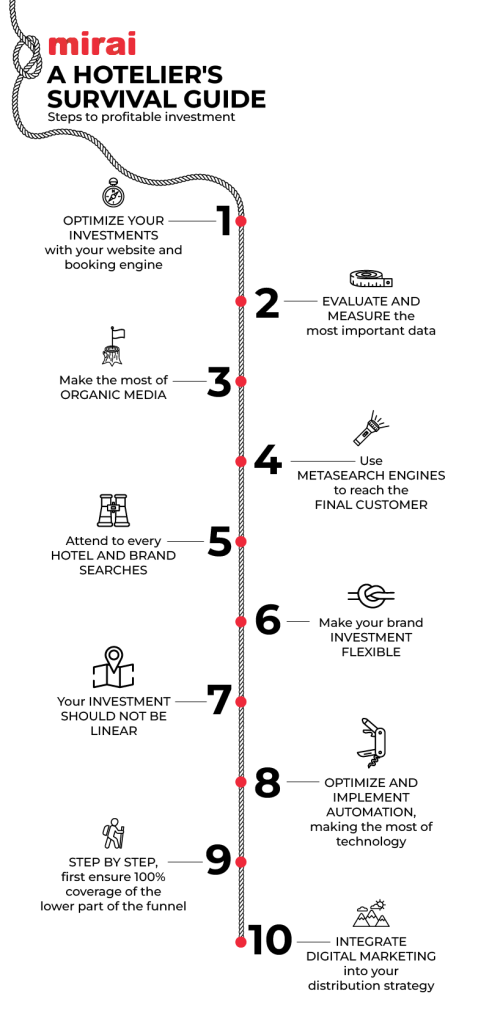On the 1st of August 1981, MTV broadcast the first music video in its history: “Video killed the radio star”, by The Buggles, a declaration of intentions that predicted, in the form of a catchy tune, the death of the radio format in favour of video.
NB: This is an article from mirai, one of our Expert Partners
Subscribe to our weekly newsletter and stay up to date
More than a decade later, in the mid-1990s, the emergence of the internet in our homes would prove to be a golden opportunity for companies the world over to offer direct access to their end customers, eliminating middlemen from the equation. “The Internet killed the middleman”. A new era: direct online sales.
Though decades have passed since these two events, we can affirm that both the radio formula and intermediaries are still in very good health. Let no one sound the death knell yet, no one is dead yet.
Over this period, most hotels and hotel chains have discovered that direct sales bring with them many associated advantages (including reduced intermediary costs and a direct relationship with the customer at all stages of the purchase), as well as at least one inescapable obligation: the customer needs to be able to find you. You need digital marketing.
While in principle this may seem a simple premise, it’s one that doesn’t quite work in practice. Why? We are probably put off by the fact that we have to provide the capital before knowing the exact profitability, whereas the commission model used by intermediaries gives us far more security, as we only have to pay on success and on confirmed bookings. So zero risk.
On the other hand, this reluctance of paying in advance clashes with the expansionist spirit that has always characterized hotel companies. This expansion has been based on investments with medium-term profitability and uncertainty has always hovered over our heads.
Despite the fact that we are no strangers to risk and rather than think “He has spent 52 million on the construction of a new hotel”, would prefer to believe “He has invested 52 million in the construction of a new hotel”, when we speak of digital marketing we often hear expressions such as “I can’t spend that much”, “I’ve already spent too much” or “I don’t want to spend any more”.
Digital marketing is an investment that is necessary in terms of bringing our direct channel to where our customers are and achieving the highest possible sales volume. As part of our distribution strategy, it is an essential tool in terms of capturing and generating opportunities. Intermediaries have learned this lesson well and apply it in an exemplary manner. They are decades ahead of us.
It’s perfectly understandable to want to get the best possible return on investment. Fortunately, in the field of digital marketing today, this is easier than ever, as we can complement our digital marketing tactics with automation, machine learning and optimization tools to help us achieve those results.
The secret to success lies in aligning your direct sales strategy correctly with digital marketing. Nonetheless, if you feel you still haven’t got the formula quite right, here is our survival guide to getting the most out of your campaigns:






